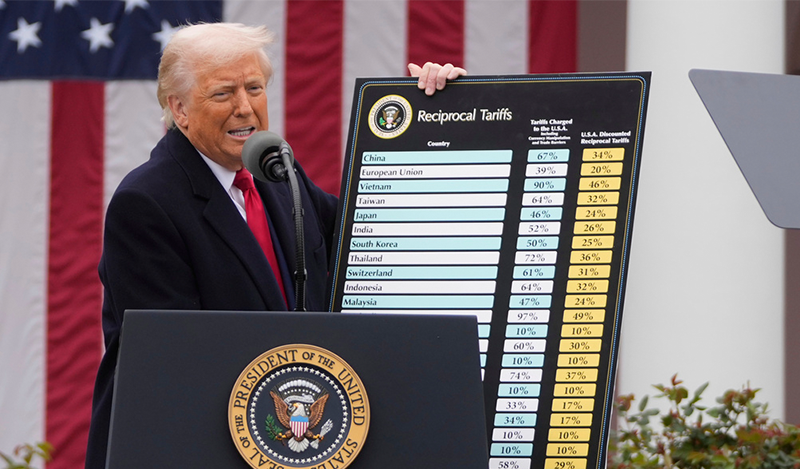Welcome to Our Research Archive
Search and filter by content type, issue area, author, and keyword
- ✕ Clear Filter
- Artificial Intelligence (6)
- Child Welfare (50)
- Child Welffare (2)
- Civil Society (38)
- divorce (1)
- Economic Opportunity (1)
- Economic Security (110)
- Economic Well-Being (4)
- Education (210)
- Family (117)
- Featured (6)
- Fmaily (1)
- Fraud (2)
- Housing (114)
- Housing Supply (1)
- Immigration (2)
- Labor Market (2)
- Marriage (5)
- New York (1)
- Safety Net (228)
- Social Capital (44)
- Social Captial (1)
- Society and Culture (1)
- Tax & Transfer Policies (1)
- tax credit (2)
- Technology and Innovation (1)
- Temporary Assistance for Needy Families (TANF) (1)
- Welfare (3)
- Workforce (120)
- Workforce Development (4)
- Workfrce (1)
- Workfroce (1)
- Workorce (1)
- ✕ Clear Filter
- Adam J. White (1)
- Angela Rachidi (65)
- Beth Akers (39)
- Brent Orrell (108)
- Bruce D. Meyer (15)
- Casey B. Mulligan (1)
- Charles Murray (1)
- Daniel A. Cox (11)
- Edward J. Pinto (31)
- Edward L. Glaeser (10)
- Frederick M. Hess (40)
- Greg Wright (1)
- Howard Husock (91)
- Ian Rowe (15)
- James C. Capretta (1)
- James Pethokoukis (21)
- John Bailey (2)
- Joseph Fuller (6)
- Kevin Corinth (77)
- Kyle Pomerleau (9)
- Leslie Ford (6)
- marie cohen (1)
- Mark Schneider (9)
- Mason M. Bishop (2)
- Matt Weidinger (86)
- Matthew Continetti (1)
- Max Eden (3)
- Michael Barone (1)
- Michael Brickman (3)
- Michael Pugh (2)
- Michael R. Strain (36)
- Naomi E. Feldman (1)
- Naomi Schaefer Riley (75)
- Nat Malkus (21)
- Nicholas Eberstadt (5)
- Paul Ryan (3)
- Preston Cooper (41)
- R. Glenn Hubbard (4)
- Ramesh Ponnuru (5)
- Raphael Colard (1)
- Richard Burkhauser (8)
- Richard V. Burkhauser (4)
- Robert Cherry (6)
- Robert Doar (14)
- Robert Pondiscio (18)
- Ross Douthat (2)
- Ryan Streeter (5)
- Sally Satel (2)
- Samuel J. Abrams (7)
- Scott Winship (63)
- Stan Veuger (10)
- Timothy P. Carney (16)
- Tobias Peter (37)
- W. Bradford Wilcox (91)
- Yuval Levin (10)

August 1, 2025
Trump’s tariff deadline: Six experts weigh in
Trump’s trade deals have been surprising in their one-sidedness, in favor of the United States. The president’s supporters have painted this in a positive light. But it likely reflects two things. First, Trump is willing to impose more economic harm through higher tariffs on the U.S. than our trading partners are willing to impose on…
July 30, 2025
Is Marriage Back? Divorce Is Down, Family Stability Is Up
For decades, conventional wisdom has held that the trajectory of American family life is heading in one direction: towards the abolition of marriage as the stable anchor of family life and a more diverse family future. In 1994, the family psychologist John Gottman wrote there is “no denying that this is a frightening time for couples” with “more…

July 30, 2025
The Expertise Upheaval
How Generative AI’s Impact on Learning Curves Will Reshape the Workplace Generative AI (GenAI) is set to reshape the workforce, redefining career pathways and talent development. However, despite public anxieties about mass displacement, GenAI’s biggest impacts won’t be on the number of jobs so much as on the level of expertise required to do them….

July 30, 2025
It’s Not Surprising That No-Strings Attached Cash Didn’t Help Kids
A recent study put to the test an idea that has become increasingly influential over the past decade: To help kids thrive, one of the best things you can do is to give their parents cash with no strings attached. This idea was the impetus in 2021 for the one-year replacement of the existing Child Tax Credit—which…

July 29, 2025
Why Marriage Survives
“There is zero statistical advantage” to getting married if you are a man in America today, Andrew Tate argued in a viral 2022 video on “why modern men don’t want marriage.” Women, he believes, are worthless anchors—“They want you monogamous so that your testosterone level drops,” he posted on X last fall—and your marriage is likely…

July 24, 2025
Divorce In Decline: About 40% Of Today’s Marriages Will End In Divorce
We’ve all heard the mantra that half of all marriages end in divorce. This idea often gets peddled as a way of dissuading young adults from tying the knot. If you only have 50/50 odds of making it, is marriage really worth the risk? Much of this caution surrounding marriage comes from those who’ve personally…

July 23, 2025
Over 1,000 Colleges Could Lose Access to Federal Student Aid
Students are not the only ones who enjoyed a reprieve during the nearly five-year pause on federal student loan payments. Colleges also got a break from a rule that bars them from the federal student aid system if their former students’ loan default rates are too high. Now that student loan payments have resumed, however,…

July 22, 2025
How Large Would SNAP Be? Simulating the Size of SNAP Based on Changes to the Unemployment Rate
Abstract The Supplemental Nutrition Assistance Program (SNAP) is a means-tested transfer program available to all households that meet the eligibility criteria. Therefore, SNAP is also a countercyclical program, meaning that the size of the program increases during recessionary periods and decreases during expansionary periods. A large literature quantifies the magnitude of the relationship between the…

July 18, 2025
The Misunderstood Gains of Modern America
An unfortunately popular myth peddled by populists on both the left and right is that America has been in steady decline since the 1970s. To hear them tell it, the country has become a rigged game: stagnant wages, hollowed-out jobs, and lives made harder by rapacious, elite-driven capitalism. But a more honest accounting of the…

July 18, 2025
How We Can Make Housing Affordable Again
A letter to the editors in response to William A. Galston’s recent article, Trump Can’t Ignore Our Housing Crisis This letter was originally published by The Wall Street Journal. You can read the original article here. The three most important words in real estate are said to be location, location, location. The three most important factors in housing…